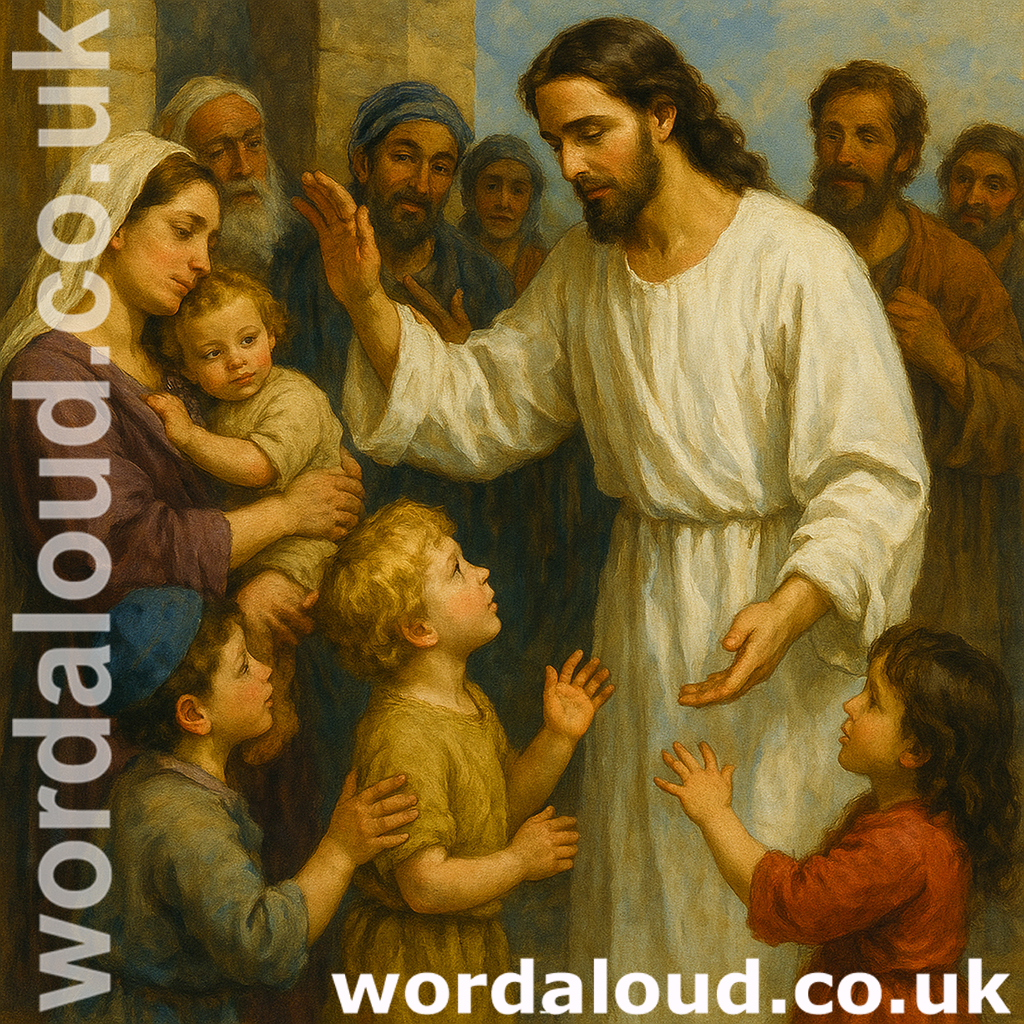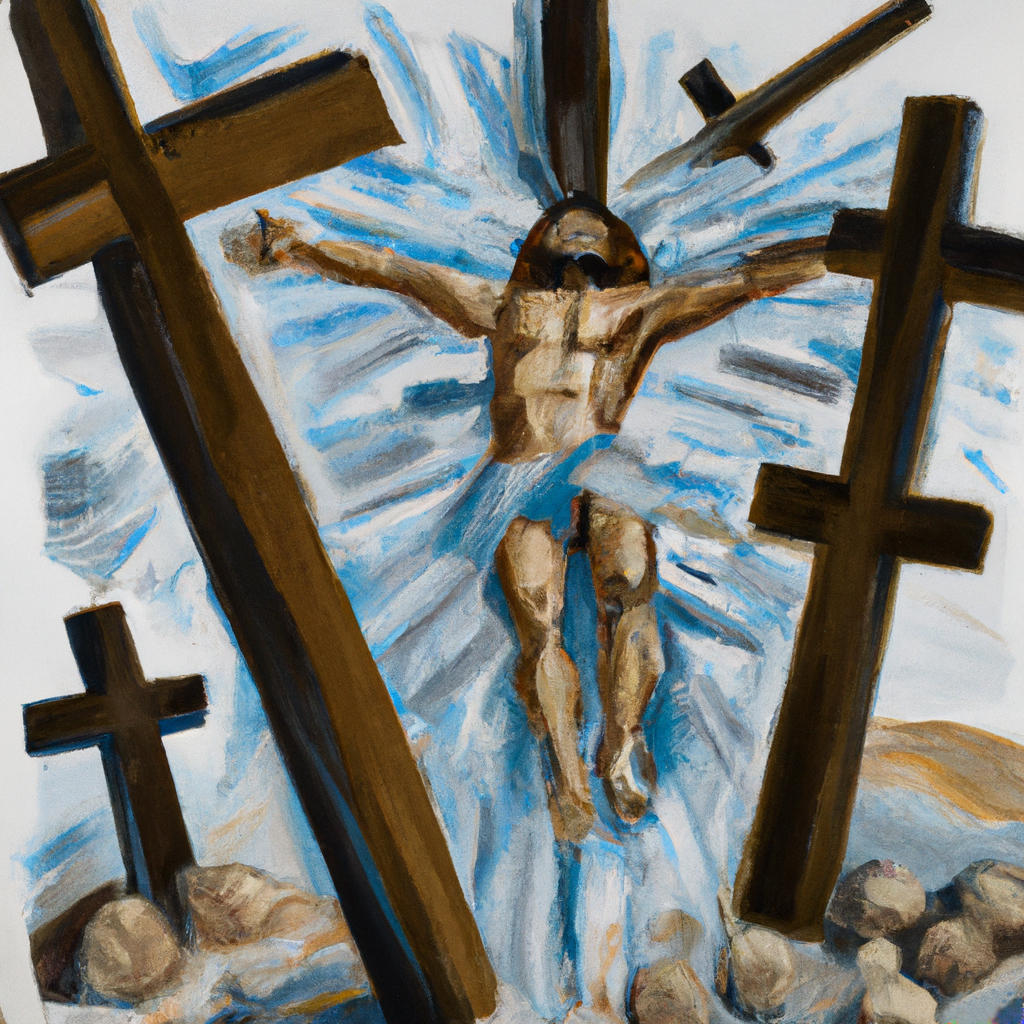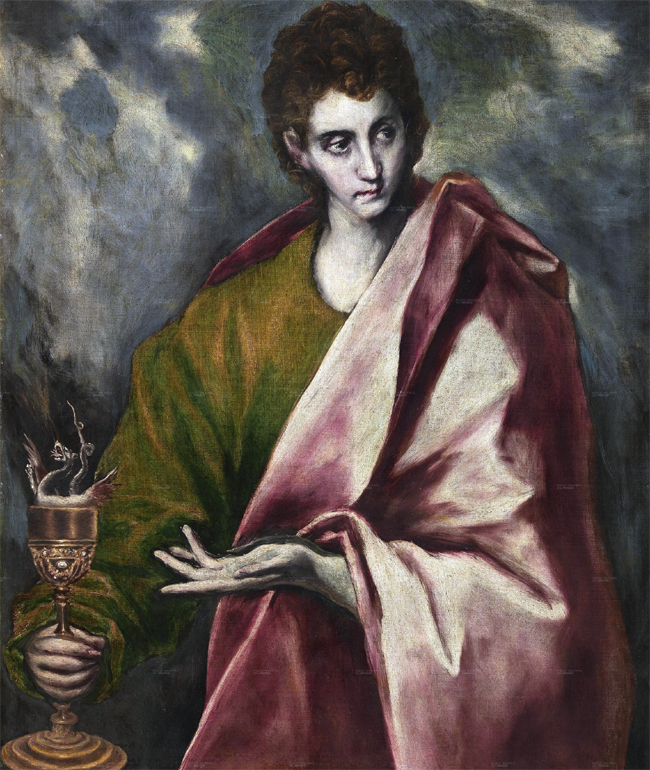Christian Art | Parables Of Jesus | King James Audio Bible KJV
Luke 12: 39-48 | King James Audio Bible | KJV | Parables Of Jesus | Week 29 Wednesday
39 And this know, that if the goodman of the house had known what hour the thief would come, he would have watched, and not have suffered his house to be broken through.
40 Be ye therefore ready also: for the Son of man cometh at an hour when ye think not.
41 ¶ Then Peter said unto him, Lord, speakest thou this parable unto us, or even to all?
42 And the Lord said, Who then is that faithful and wise steward, whom his lord shall make ruler over his household, to give them their portion of meat in due season?
43 Blessed is that servant, whom his lord when he cometh shall find so doing.
44 Of a truth I say unto you, that he will make him ruler over all that he hath.
45 But and if that servant say in his heart, My lord delayeth his coming; and shall begin to beat the menservants and maidens, and to eat and drink, and to be drunken;
46 The lord of that servant will come in a day when he looketh not for him, and at an hour when he is not aware, and will cut him in sunder, and will appoint him his portion with the unbelievers.
47 And that servant, which knew his lord’s will, and prepared not himself, neither did according to his will, shall be beaten with many stripes.
48 But he that knew not, and did commit things worthy of stripes, shall be beaten with few stripes. For unto whomsoever much is given, of him shall be much required: and to whom men have committed much, of him they will ask the more.
The parable teaches us that we must be ready, because we do not know when Christ will come to us, for the final account of our lives. This is a warning, edging our lives with the unpredictable.
One positive effect of this parable is that it helps us to remain alert to the present moment. While it is easy to allow our thoughts to drift from where we are here and now, to recall the past, to worry or hope for the future, or to slip into daydreams and fantasy altogether, it is when we bring our attention to this very moment of time that we find sharpness, significance, and vibrancy in our life. We may realise just how extraordinary this great gift of life truly is, and feel empowered to live well and offer ourselves wholly to God. When we are attentive to this moment in time we may walk with Jesus.
Peter’s question, ‘Lord, speakest thou this parable unto us, or even to all?’ recalls Jesus’ saying:
[I]t is given unto you to know the mysteries of the kingdom of heaven, but to them it is not given.
12 For whosoever hath, to him shall be given, and he shall have more abundance: but whosoever hath not, from him shall be taken away even that he hath.
13 Therefore speak I to them in parables: because they seeing see not; and hearing they hear not, neither do they understand. (Matthew 13: 11-13)
Jesus responds with another parable, of the master and the steward, which might well be particularly attuned to Peter’s future needs and role within the Church. The steward is set over the household to take care of them, to be a good servant, and his blessings will be great if he is found to be performing his role well.
It might be that Peter, with the other disciples, who will be shepherds of the Christian people, are being particularly warned by Jesus to continue to show all love and kindness and respect for duty – all faithfulness – as time passes and some might imagine that Christ’s return has been indefinitely delayed.
In telling the parable, Jesus knows that the full meaning of his return, of the coming of the Kingdom, will emerge with time, and that an adjustment of understanding may be required. The stewardship of the apostles and their descendents is for all time.
The parable is also for everyone, all Christians. When Christ called us to be his brothers and sisters we were all given much, a tremendous living principle to animate our lives, such that we may accomplish our life’s mission, whatever it might be. We have our Christian service to perform, not least to be alive and responsive to Christ in each moment, and to find ourselves complete as we fulfil our ultimate purpose, to love God.
Psalm 130 (129)
OUT of the depths have I cried unto thee, O Lord.
2 Lord, hear my voice: let thine ears be attentive to the voice of my supplications.
3 If thou, Lord, shouldest mark iniquities, O Lord, who shall stand?
4 But there is forgiveness with thee, that thou mayest be feared.
5 I wait for the Lord, my soul doth wait, and in his word do I hope.
6 My soul waiteth for the Lord more than they that watch for the morning: I say, more than they that watch for the morning.
7 Let Israel hope in the Lord: for with the Lord there is mercy, and with him is plenteous redemption.
8 And he shall redeem Israel from all his iniquities
King James Audio Bible | Endnotes
The Parable of the Master and the Steward is one of the many parables used by Jesus to teach about the Kingdom of God. In this parable, Jesus emphasizes the importance of being prepared and faithful in one’s stewardship of the things God has entrusted to us.
Jesus teaches Christians to anticipate the Second Coming, the Parousia, when he will return to judge the living and the dead. The Parable of the Master and the Steward reminds us to be diligent in our faith and to be ready for Jesus’ return, as we do not know when it will occur.
This parable relates to the Garden of Gethsemane, where Jesus prayed and was arrested before his crucifixion, and the Sermon on the Mount, where he taught the disciples about God’s laws and the principles of the Kingdom of God – about the path to heaven. The crucifixion of Jesus, the Christian Cross, is the ultimate sign of Jesus’ sacrifice and love for humanity, and it is the crux of the meaning of parables. Through the Christian Cross, we receive forgiveness of our sins and the promise of eternal life with God.
In Christianity, the Church acts as a community of believers who worship and praise God through prayer, baptism, and other spiritual practices. We pray for heaven, and we pray for the spiritual assistance to reject hell.
We are called to be prepared and faithful in our stewardship of God’s gifts, and to always be ready for Jesus’ return. Through worship, prayer, and other spiritual practices, we can honour God and so we hope secure our place in heaven.
![]()









